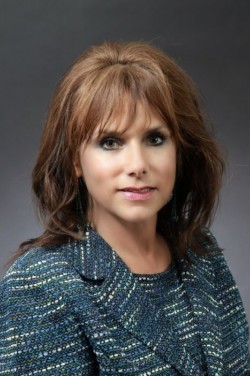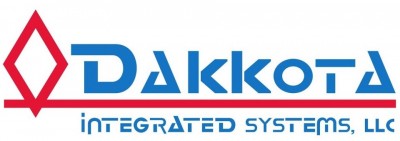Becoming a nurse and a groundbreaking business leader
Alumna Andra Rush’s U-M School of Nursing education inspired entrepreneurship that has broken barriers and supported communities across the United States and Canada.
 Before Title IX legislation helped create more opportunities for women in athletics, Andra Rush (BSN ’82) hid her long hair under a baseball cap and registered for the local boys-only hardball team as “Andi.” Rush, now the founder and CEO of the largest woman-owned business in Michigan and one of the largest Native American-owned businesses in the United States, was eventually found out by league officials and kicked off the team. However, she looks back at her ruse to play hardball and other mold-breaking activities as the first signs of her entrepreneurial spirit.
Before Title IX legislation helped create more opportunities for women in athletics, Andra Rush (BSN ’82) hid her long hair under a baseball cap and registered for the local boys-only hardball team as “Andi.” Rush, now the founder and CEO of the largest woman-owned business in Michigan and one of the largest Native American-owned businesses in the United States, was eventually found out by league officials and kicked off the team. However, she looks back at her ruse to play hardball and other mold-breaking activities as the first signs of her entrepreneurial spirit.
“I was one of the first girls to have a paper route,” said Rush. “I also used to help my father, who did a lot of business on the side. He was a car painter, so we would fix up cars and then sell them.”
A nurse-turned-entrepreneur, Rush is the chair and CEO of the Rush Group of Companies, which at one time included Rush Trucking Corporation, Dakkota Integrated Systems, Detroit Manufacturing Systems and Rush Supply Chain Management. She started building her business in 1984, when she borrowed $5,000 from her parents, combined with $3,000 in savings, and used her credit cards to launch Rush Trucking with one van and two pickup trucks.
Her motivation to start the company was the same that initially led her pursue nursing — she simply wanted to help people.
“Helping people is what makes me feel complete,” said Rush, who earned her BSN at the U-M School of Nursing and worked briefly at Michigan Medicine before pursuing her entrepreneurial calling. “I thought I could help people who were less fortunate than me by starting by own business.”
When she finally made the decision to go to business school, Rush continued working as a nurse. She soon realized that doing both was too much and decided to pursue a full-time internship at an airfreight business. There, she learned all aspects of the business, including the piece of information that would spur her idea to start Rush Trucking: The faster you can deliver something is the key to profitability in the shipping industry.
Nursing principles translate to business
“What I envisioned for my business is that I would give emergency shipments to plants,” Rush recalled as she spoke about the genesis of Rush Trucking when she was just 23 years old. “Back in the ‘80s, if you shut down an assembly plant of an OEM (original equipment manufacturer) it would cost that plant $10,000 per minute. I learned a sense of urgency very quickly in the expedited shipping business, which correlates to nursing.”
Rush credits her education and training as a nurse for preparing her to manage the high-pressure nature of the industry when she was first getting started.
“In nursing, you learn how to think about things in a logical way,” said Rush. “It teaches you how to assess a situation very quickly and take an appropriate action. Those are the things you need when you start a business.”
After decades of owning and operating several other highly successful business ventures beyond trucking, Rush’s experiences have led her to conclude that the training you receive as a nurse can serve people in any industry.
“I think the training in nursing would be phenomenal for every young person, because it’s an experience where you don’t have the luxury to not decide,” she said. “Nursing and the medical field teach you how to be a team, and you need to do that in business. You work through a problem with your customer that you never experienced before.”
Evaluating the characteristics and qualities that make an effective leader in the business world, Rush sees many of those qualities in nurses.
“Nursing teaches you how to care for and serve others,” said Rush. “Those are great qualities in a leader. Nursing also trains you to prioritize care and resources. In triage nursing especially, you have to make tough decisions.”
An outlet for good
 Rush’s desire to help others through her success as a business owner began with small goals. First, she just wanted to help her family, who sacrificed so much for her. But as her business empire grew, she invested in communities to provide greater access to jobs and opportunities to grow professionally through education.
Rush’s desire to help others through her success as a business owner began with small goals. First, she just wanted to help her family, who sacrificed so much for her. But as her business empire grew, she invested in communities to provide greater access to jobs and opportunities to grow professionally through education.
“I saw stark inequality all the time at a very young age,” said Rush, a descendant of the Mohawks of the Bay of Quinte in Ontario, Canada, whose paternal grandmother grew up on the reserve. “Now we have to teach others to pivot their thought processes to be intentionally inclusive.”
Rush launched Dakkota Integrated Systems in 2001, providing assembly and sequencing of automotive interiors to original equipment manufacturers, including General Motors, Chrysler and Ford. At Dakkota’s 14 locations in the U.S. and Canada, she has created good-paying jobs for Native people near tribal reservations.
President Barack Obama acknowledged Rush by name during his 2014 State of the Union address for creating hundreds of manufacturing jobs in Detroit with the June 2012 opening of another business, Detroit Manufacturing Systems — the first such plant to open in the city of Detroit for decades.
“Our companies encourage and pay for education after six months,” said Rush, who stressed the importance of inclusive educational opportunities. “People who are always learning are more engaged. Higher education gives you the privilege of lifelong learning.”
While Rush’s original plan to help others through nursing changed, she still sees nursing as one of the best outlets to do good and continually grow personally and professionally.
“What I love about nursing is that it has such a depth and breadth of opportunity within the field,” Rush said. “It gives you flexibility in your life to have options and really feel like each day you’re having an impact.”





